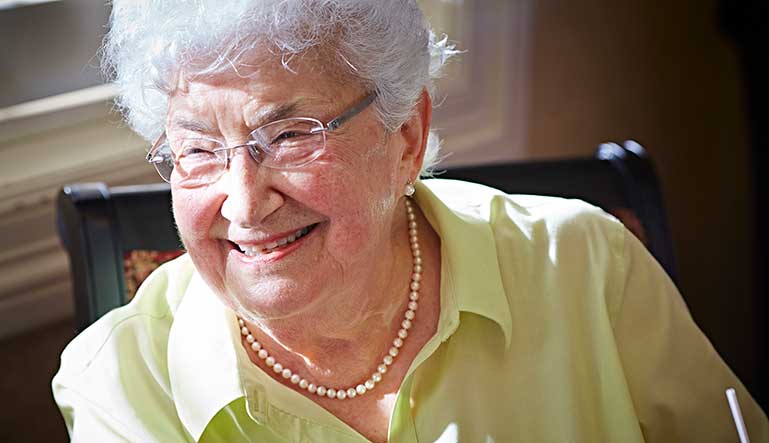When a parent has Alzheimer’s or another type of dementia, adult children may struggle to keep them safe and engaged at home. It is a difficult condition to navigate, especially if family members work outside the home. From nutritional struggles to concerns about wandering, caring for a loved one with dementia can be all-consuming. It sometimes leads families to explore memory care assisted living programs in hopes of improving the senior’s quality of life and their safety.
A specialty dementia care program, like the Bridge to Rediscovery at Five Star, meets the residents where they are – looking at their current abilities to create a lifestyle that supports engagement so that they can enjoy their best quality of life. These programs also provide a secure environment that supports freedom while reducing the risk of wandering.
But for many adult children, the idea of moving a parent with memory loss to an assisted living community can create stress and anxiety. It can also lead loved ones to feel guilty about their inability to manage a parent’s care at home.
How can you help a senior loved one with dementia successfully transition to a new environment? We have some tips you might find useful.
4 Tips for Moving a Parent with Dementia
- Make it familiar: For people with memory loss, being surrounded by familiar things helps to decrease their stress and anxiety. This becomes more difficult to do as the dementia progresses, so it takes thoughtful planning. Think about the items your parent uses and touches most often. Maybe it’s a throw they cover up with in their favorite chair. Or it could be a cherished photo from their wedding day. Try to recreate their home environment in their new assisted living apartment or suite. Hang their bathrobe up in a place they immediately notice it. Cover their bed with a quilt or comforter they might recognize. Place family photos all around the apartment before they arrive. Whatever belongings signal “home” to your parent are important to incorporate into their new space. One of the signatures of Five Star’s Bridge to Rediscovery Memory Care program is the keepsake box that includes special mementos. Our community team will teach you how to create one for your loved one.
- Moving time matters: Adults with Alzheimer’s and other forms of dementia usually have good and bad times of day. While the disease can be unpredictable, it will help to schedule a move to coincide with their best time of day. For many seniors with dementia, morning is the easiest time, especially if they experience sundowner’s syndrome. If possible, have a relocation company or loved ones move belongings while you keep your parent occupied. Once the new apartment is settled, you can introduce them to their new residence. We have shadow boxes displaying our residents’ pictures and item of personal interest by the entrance to their residence to make it easy to locate and to give a reassuring feeling of belonging.
- Create a reminiscence board: When a senior has dementia, they may have difficulty with verbal skills. This makes it more challenging for the staff to get to know them. You can help by creating a reminiscence board or scrapbook with photos of family members along with names and descriptions. Share it with the team members ahead of time so they can look it over before your parent’s arrival. Once they move in, you can keep it in a prominent place in the apartment to share with staff and visitors. Our Bridge to Rediscovery neighborhoods help the family to complete a detailed life narrative. We learn all about each individual’s story, their career, their hobbies, their like and dislikes and more. This helps make the transition much more comfortable for everyone.
- Music as therapy: Many people find the healing harmonies of music to be beneficial. This is true for adults with dementia, too. During this time of transition, play some of their favorite music softly in the background. This can help decrease the anxiety your loved one is likely feeling and unable to verbalize. Set up a small CD player with a few of their favorite musicians. Ask the care team to turn it on when you can’t be there.
When to Make a Transition to Dementia Care
Finally, if you are wondering how to tell if it is time for your parent to move to a memory care community, we have a resource that can help you decide. When to Transition a Loved One to Memory Care outlines signs and concerns that indicate a senior should make a move to dementia care assisted living.
Contact Us Today
"*" indicates required fields

